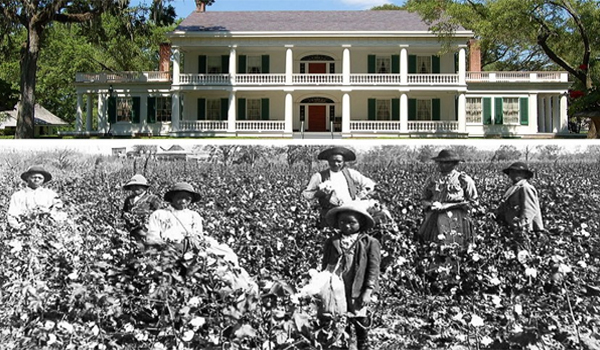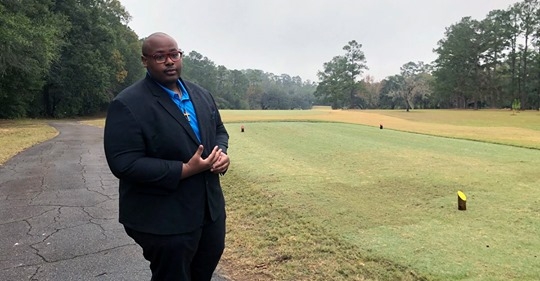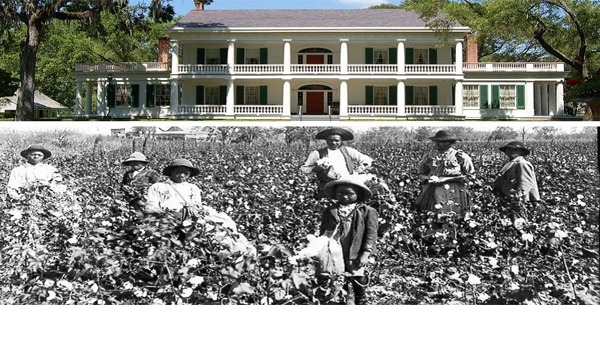
It’s almost too trite to use Bob Dylan’s “The Times They Are A-Changin'” lyrics to introduce this article. The plain, clear truth is – they are. When major news organizations like the Kansas City Star and the L.A. Times launch historical reviews uncovering decades of racist news coverage; when major sports teams like the Washington Football Team and whatever the Cleveland baseball team decides to rename themselves; when well-known grocery brands like Aunt Jemima, Uncle Ben’s, Mrs.
Butterworth’s, Cream of Wheat and Dixie Beer (and others) awaken to what their brand images represent – we have to hope that golf’s effort for inclusiveness and diversity will convince the many facilities with “Plantation” in their titles to look inward and rebrand themselves to align with today’s racial sensitivities. The good news is – some already have, and others are under consideration. A few others, unfortunately, will stay as they are or continue to procrastinate.
The Internet Golf Course Database (IGDB) identifies 75 golf facilities that include “Plantation” in their brands. Fifty-five are public, the balance private. The vast majority are spread, not surprisingly, among Southern and Southeastern states. South Carolina has the most (22), followed by Florida (15). There is one as far west as Hawaii, one in California, and the northernmost “Plantation” club, in Idaho, recently changed its name. More on that later. Twenty-nine are NGCOA members. (Note – I’ve counted facilities, not courses).
According to the National Humanities Center, in 1860, 4.5 million African descendants lived in the United States. Of these, four million were enslaved, held by 385,000 slave owners; and 3.6 million lived on 46,300 farms and plantations with 20 or more slaves that averaged 1,000 acres or more. They left lots of room for golf courses. Now we’re trying to get descendants of those slaves to come and play golf.
There is enlightenment at the end of the tunnel.
The IDGB will soon update its 75 “Plantation” facilities with 16 that have dropped, or soon will drop, the designation from their brands. One is very recent – The Plantation Country Club in Idaho, now The River Club.
 YOU MAY ALSO LIKE: Golf club built on slaves’ graves sparks debate on how to honor the dead
YOU MAY ALSO LIKE: Golf club built on slaves’ graves sparks debate on how to honor the dead
New owner Will Gustafson of Glass Creek, LLC was quoted in local media, “We felt from the very beginning that ‘Plantation Country Club’ did not reflect the vision we had for the club’s future: a fresh, modern, inclusive, and welcoming club for all members of the community. This year brought a sharp focus on just how imperative it was for our club not to be attached to that dark piece of America’s history, and we knew we couldn’t wait any longer.”
General Manager Jayson Peterson adds that the former American Golf facility’s new ownership drove the name-change decision, with nary any pushback from members. In fact, none have quit, and membership is full with a waiting list.
Across the country in the Southeast, a prominent course owner told me, “Our golf facility sees the future while committed to retaining its historical past. I prefer to remain anonymous and stay quiet on forthcoming brand changes to avoid getting shrouded in the racial politics endemic in this red-leaning state.”
The golf course is contained within a community sporting the “Plantation” label, and like others, a community branding change is a laborious and expensive process. But that’s not stopping this course owner from rebranding the facility itself. A name change reflects a desire to “be more inclusive and not be a political statement.”
 YOU MAY ALSO LIKE: 15 Major Corporations You Never Knew Profited From Slavery
YOU MAY ALSO LIKE: 15 Major Corporations You Never Knew Profited From Slavery
What’s remarkable is the commitment to preserve plantation history on the property. The golf course sits on what was once a large 1700-1800s slave plantation. Among its features for preservation include a slave cemetery, ruins of slave living quarters, and historical markers. The effort is to retain the plantation historical features for the lessons they invoke while embracing golf’s inclusiveness and diversity movement. Admirable, to say the least.
Brown Golf operates Palmetto Hall Golf and Country Club. CEO John Brown reports that “Plantation” was formally dropped “in all areas at the golf course level.” The surrounding community, Palmetto Hall Plantation, changed all its signage to eliminate that label following a polling of residents. However, the community is still known as “Palmetto Hall Plantation.” Brown firmly says, “I believe it should change,” and pledges support to that end.
Brown elaborated further on his company’s commitment to diversity and inclusion. Brown provides resources to a PGM program at the University of Maryland Eastern Shore, a Historical Black College and University (HBCU).
Others cite the “community” aspect to excuse not implementing a name change. Arcis Golf owns Plantation Golf Club in Frisco, Texas. My inquiry received the following from their public relations representative: “Plantation Golf Club in Frisco, Texas is owned by Arcis Golf, but we operate as part of a larger master-planned community, Plantation Resort, which is governed by property owners. We always make an effort to respect the views of any community where we operate, and we will absolutely support the will of the community and gladly work with them if they decide to change their designation.”
The CEO of a multi-course operator in the Southeast, and a prominent PGA member, cites both community politics and legal procedures as the hurdles to leap. “We operate a club with “Plantation” in its name, but no one refers to it as such. In fact, we have several Black members who haven’t voiced their concerns to me. I’m firmly on the side of dropping the label from everything and will work with those in the HOA and subdivision who agree.”
That effort is not as simple as changing signs. Every municipality has policies for subdivision renaming. Here’s a link to one from Dunwoody, Georgia. Among other things, the change might require a supermajority vote of consent. The policies and processes should not deter doing the right thing, but they’ll surely slow the momentum generated by those who have changed or are thinking of doing so.
Alas, there are always those with difficulty reading the greens. They might cite the property’s history or stretch that to “heritage.” They might go as far as congratulating themselves for not flying the Confederate flag. The juxtaposition with those making and pursuing changes is striking.
Firmly implanted in our golf world is “Plantation” as a brand moniker. Some have heeded the call to respect the sensitivities of people of color we so badly hope will join the game. A few more hope it will happen and will work towards that end. The rest should heed Bob Dylan’s lyrics:
Please heed the call
Don’t stand in the doorway
Don’t block up the hall
For he that gets hurt
Will be he who has stalled.
This article was originally published in March 2021 in GolfBusiness.com


